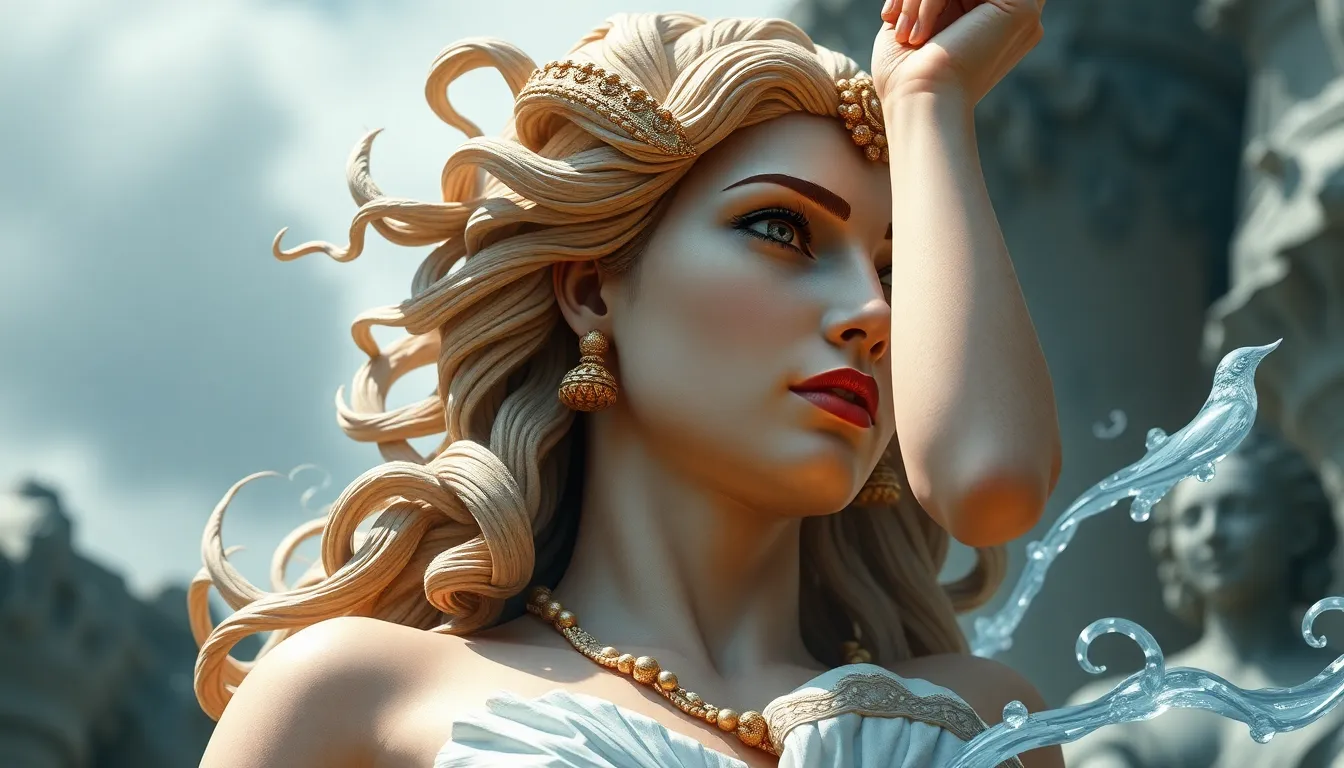Pandora: The First Woman in Greek Myth and Her Lasting Legacy
I. Introduction
Greek mythology has captivated audiences for centuries, offering tales woven with deep moral lessons, vibrant characters, and profound themes exploring the human condition. Among these tales, the story of Pandora stands out as a pivotal narrative that explores themes of curiosity, consequence, and the dual nature of existence.
Pandora, often considered the first woman, was created by the gods and set into motion a series of events that would forever alter the course of humanity. This article delves into Pandora’s origins, her myth, the symbolism of her actions, and her lasting influence on culture and society.
II. The Origins of Pandora
Pandora’s creation is a significant event in Greek mythology, representing a collaboration of divine powers. The gods, displeased with humanity, decided to create a being that would bring both gifts and challenges to mortals.
- Hephaestus: The god of fire and craftsmanship molded Pandora from earth and water, giving her physical form.
- Athena: The goddess of wisdom adorned Pandora with beautiful garments and taught her the arts of weaving.
- Aphrodite: The goddess of love bestowed upon her beauty and charm, making her alluring to all.
- Hermes: The messenger god granted her cunning and deceitful traits, ensuring she would be a complex figure.
The name “Pandora” itself means “all-gifted,” symbolizing the myriad of blessings and burdens she would bring to humanity through her very existence.
III. The Myth of Pandora’s Box
The most famous aspect of Pandora’s myth is encapsulated in the story of Pandora’s Box—though it is more accurately described as a jar (pithos). According to the myth, Zeus, king of the gods, presented Pandora with this jar, instructing her never to open it.
However, driven by curiosity, she disobeyed and opened the jar, releasing all the evils of humanity, such as disease, despair, and sorrow. This act highlights significant themes:
- Curiosity: Pandora’s insatiable desire to know led to the unleashing of chaos upon the world.
- Disobedience: Her failure to obey divine command illustrates the consequences of defiance.
The act of opening the jar marks a moment of transformation, where innocence is shattered, and humanity is confronted with suffering.
IV. The Contents of Pandora’s Box
The evils released from Pandora’s jar symbolize the struggles inherent in human existence. These include:
- Pain
- Illness
- Greed
- Hatred
- Despair
However, amid the chaos, hope remained trapped at the bottom of the jar. This duality of suffering and hope reflects the complexity of life. The presence of hope signifies that even in the darkest times, there is a glimmer of light, a promise for better days.
V. Pandora in Art and Literature
Pandora’s image has been depicted in various forms of art throughout history, each representation reflecting the cultural values and interpretations of her myth.
- Ancient Art: In ancient pottery and sculptures, Pandora is often shown as a beautiful woman, emphasizing her allure and the gifts she brought.
- Classical Literature: Poets like Hesiod narrated her story, framing her as a source of both beauty and calamity, influencing later literary works.
- Modern Interpretations: Today, Pandora is portrayed in various media, including films, literature, and art, often reinterpreted to reflect contemporary themes of empowerment and consequence.
VI. Pandora’s Legacy Through the Ages
Pandora’s narrative has significantly shaped societal views on women. Initially portrayed as a figure who brings misfortune, her character has evolved over time:
- Victim of the Gods: Many interpretations see her as a pawn in the gods’ game, reflecting the power dynamics between divine beings and mortals.
- Symbol of Temptation: Pandora embodies the archetype of temptation, often used to discuss women’s roles in society.
- Source of Knowledge: In modern feminist discourse, she is viewed as a complex character who represents the quest for knowledge and understanding.
VII. Cultural and Psychological Interpretations
Pandora’s myth holds relevance in contemporary psychology and cultural discussions:
- Contemporary Psychology: Pandora’s actions and their repercussions can be analyzed through the lens of human behavior, curiosity, and the consequences of our choices.
- Feminist Discourse: The narrative has been embraced as a topic of exploration regarding women’s empowerment, autonomy, and the societal expectations placed upon them.
- Modern Society: Pandora serves as a reminder of the balance between curiosity and caution, emphasizing the importance of understanding the consequences of our actions.
VIII. Conclusion
Pandora’s story is a rich tapestry of themes that resonate throughout history, making her one of the most compelling figures in Greek mythology. Her legacy is a reflection on the nature of humanity, the interplay between suffering and hope, and the complexities of womanhood.
Through her myth, we learn valuable lessons about curiosity, the importance of choices, and the dual nature of existence. As we navigate the challenges of modern life, Pandora’s enduring legacy serves as a poignant reminder of the power of hope amidst adversity.
In conclusion, Pandora remains a significant figure whose story continues to inspire and provoke thought in today’s world, ensuring her place in the collective consciousness for generations to come.




